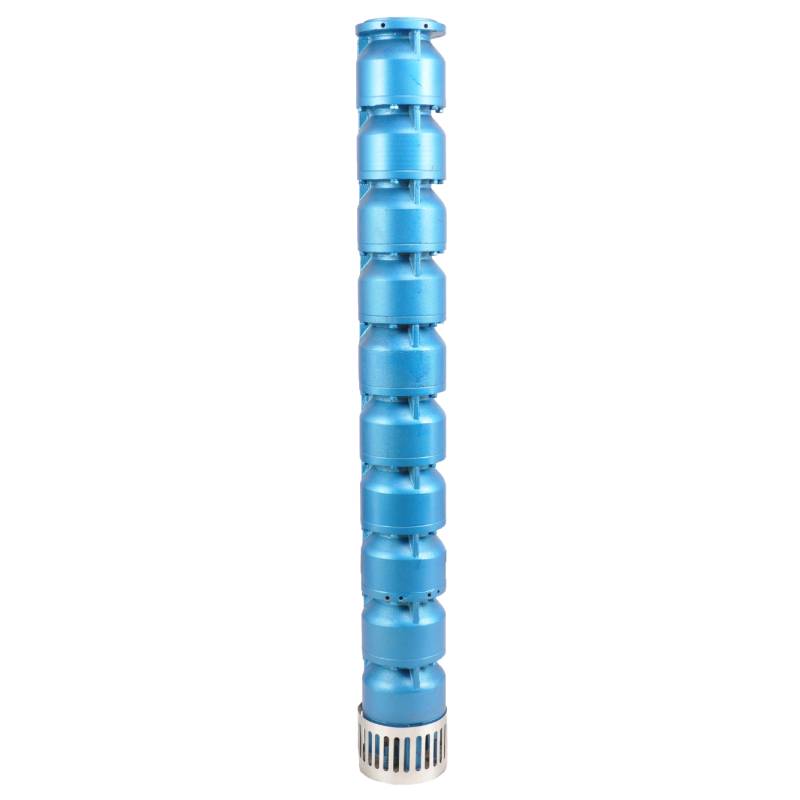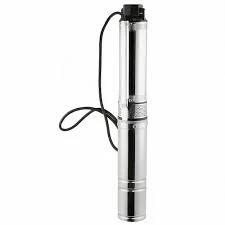Feb . 06, 2025 04:39 Back to list
submersible pump plastic impeller
In the vast domain of pumps, submersible pumps and centrifugal pumps stand out due to their distinctive characteristics and varied applications. Understanding these differences is crucial for industry professionals and consumers aiming for optimal solutions in fluid handling tasks.
However, several key differences can influence a buyer's decision when choosing between submersible and centrifugal pumps. Installation and operation present distinctive considerations. Submersible pumps are straightforward to deploy for applications within wells or tanks, requiring only appropriate fittings and securing cable arrangements. Conversely, centrifugal pumps often need more structured setup environments, typically not suitable for full submersion, requiring careful alignment with piping systems and strategic positioning to avert potential cavitation risks. Maintenance and longevity further differentiate these two pumps. Submersible pumps usually benefit from self-cooling attributes when submerged, potentially leading to a more extended service life despite requiring specialized expertise for repairs due to their inaccessibility when installed. In contrast, centrifugal pumps, being surface-mounted, offer easier maintenance but may demand consistent inspection to prevent cavitation and overheating due to fluid resistance variances. In cost considerations, initial investments generally tilt favorably towards centrifugal pumps due to their broad manufacturing and simpler technology. However, submersible pumps often predict lower long-term operational costs by virtue of energy efficiency and noise reduction, balancing the scales depending on specific project needs and environment. For industries engaging in fluid dynamics or environmental engineering, the decision between a submersible and a centrifugal pump involves weighing the immediate technological benefits and long-term operational efficiencies. Acknowledging the nuances, such as energy requirements, maintenance practicality, and application environment, will guide stakeholders in selecting the most beneficial type for their needs. Ultimately, the choice between submersible and centrifugal pumps should be informed by a comprehensive evaluation of the project’s unique challenges and specifications. By leveraging professional expertise and understanding these distinctions, one can harness the true potential these ingenious machines offer in the landscape of modern engineering solutions.


However, several key differences can influence a buyer's decision when choosing between submersible and centrifugal pumps. Installation and operation present distinctive considerations. Submersible pumps are straightforward to deploy for applications within wells or tanks, requiring only appropriate fittings and securing cable arrangements. Conversely, centrifugal pumps often need more structured setup environments, typically not suitable for full submersion, requiring careful alignment with piping systems and strategic positioning to avert potential cavitation risks. Maintenance and longevity further differentiate these two pumps. Submersible pumps usually benefit from self-cooling attributes when submerged, potentially leading to a more extended service life despite requiring specialized expertise for repairs due to their inaccessibility when installed. In contrast, centrifugal pumps, being surface-mounted, offer easier maintenance but may demand consistent inspection to prevent cavitation and overheating due to fluid resistance variances. In cost considerations, initial investments generally tilt favorably towards centrifugal pumps due to their broad manufacturing and simpler technology. However, submersible pumps often predict lower long-term operational costs by virtue of energy efficiency and noise reduction, balancing the scales depending on specific project needs and environment. For industries engaging in fluid dynamics or environmental engineering, the decision between a submersible and a centrifugal pump involves weighing the immediate technological benefits and long-term operational efficiencies. Acknowledging the nuances, such as energy requirements, maintenance practicality, and application environment, will guide stakeholders in selecting the most beneficial type for their needs. Ultimately, the choice between submersible and centrifugal pumps should be informed by a comprehensive evaluation of the project’s unique challenges and specifications. By leveraging professional expertise and understanding these distinctions, one can harness the true potential these ingenious machines offer in the landscape of modern engineering solutions.
Latest news
-
Water Pumps: Solutions for Every Need
NewsJul.30,2025
-
Submersible Well Pumps: Reliable Water Solutions
NewsJul.30,2025
-
Stainless Steel Water Pumps: Quality and Durability
NewsJul.30,2025
-
Powerful Water Pumps: Your Solution for Efficient Water Management
NewsJul.30,2025
-
Oil vs Water Filled Submersible Pumps: Which is Better?
NewsJul.30,2025
-
Deep Well Pumps: Power and Reliability
NewsJul.30,2025
-
 Water Pumps: Solutions for Every NeedWhen it comes to handling dirty water, the dirty water pump is a must-have.Detail
Water Pumps: Solutions for Every NeedWhen it comes to handling dirty water, the dirty water pump is a must-have.Detail -
 Submersible Well Pumps: Reliable Water SolutionsWhen it comes to ensuring a reliable water supply, submersible well pumps are a top choice.Detail
Submersible Well Pumps: Reliable Water SolutionsWhen it comes to ensuring a reliable water supply, submersible well pumps are a top choice.Detail -
 Stainless Steel Water Pumps: Quality and DurabilityWhen it comes to choosing a water pump, the stainless steel water pump price is a crucial factor.Detail
Stainless Steel Water Pumps: Quality and DurabilityWhen it comes to choosing a water pump, the stainless steel water pump price is a crucial factor.Detail
